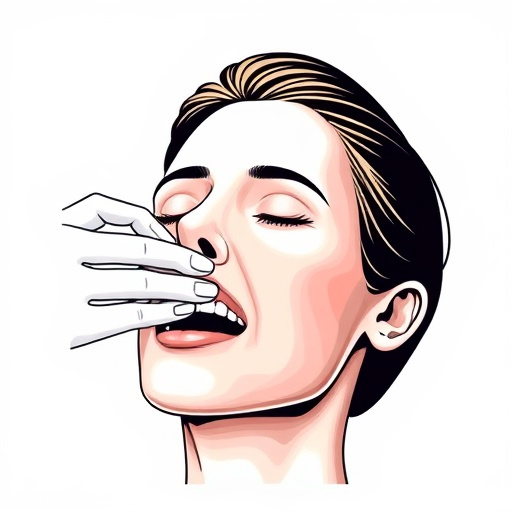Senior citizens with special needs require tailored gentle dental care approaches due to age-related factors like reduced dexterity and cognitive impairment. Dentists play a vital role in understanding these challenges, offering customized treatment plans, adapting equipment, and using calming methods to ensure comfortable routine check-ups and procedures. Specialized tools like soft-bristled brushes, electric toothbrushes, and water flossers facilitate easier plaque removal. For complex procedures, gentle techniques are essential to maintain seniors' well-being and foster positive associations with oral health.
In the realm of senior healthcare, gentle dental care is a vital consideration for individuals with special needs. As folks age, their oral health requirements evolve, necessitating tailored strategies and tools. This article explores the unique aspects of senior dental care, focusing on providing gentle dental care solutions that cater to the specific needs and challenges faced by seniors with special requirements. By understanding these needs and employing suitable techniques, we can enhance oral hygiene and overall well-being for this demographic.
- Understanding Senior Dental Care Requirements
- Strategies for Providing Gentle Dental Care
- Essential Tools and Techniques for Effective Senior Dental Hygiene
Understanding Senior Dental Care Requirements

Senior citizens with special needs often require tailored dental care approaches to maintain their oral health and overall well-being. As aging progresses, various factors can impact oral hygiene, such as reduced dexterity, cognitive impairment, and chronic medical conditions. Understanding these unique challenges is essential for providing effective gentle dental care.
Measures like adapted brushing techniques, the use of specialized oral care aids (e.g., clear aligners), and frequent teeth cleaning sessions under professional supervision become crucial. Dentists play a vital role in tailoring treatment plans to accommodate mobility issues, ensuring that routine check-ups and procedures are comfortable and accessible for seniors. This might include adapting dental chairs or utilizing tools designed for easier manipulation during complex tasks like extractions.
Strategies for Providing Gentle Dental Care

Providing gentle dental care for seniors with special needs requires tailored strategies that address their unique challenges and ensure comfort. Customizing treatment plans to accommodate physical limitations, cognitive impairments, or behavioral issues is key. This might involve simplifying procedures, using specialized equipment, and employing calming techniques to reduce anxiety. For instance, for individuals who struggle with mobility, offering chairside assistance or adapting dental tools for easier access can significantly enhance their experience.
Children’s dentistry principles, though often associated with younger patients, can be adapted to cater to this demographic. Techniques such as positive reinforcement, playful interactions, and incorporating favorite items or themes during treatments can make dental care more acceptable and less intimidating. Moreover, for those requiring complex procedures like tooth extractions or considering dental implants, a gentle approach is paramount to ensure their well-being and foster a positive association with oral health maintenance.
Essential Tools and Techniques for Effective Senior Dental Hygiene

Gentle dental care for seniors with special needs requires a tailored approach that prioritizes comfort and accessibility. Essential tools and techniques include the use of soft-bristled brushes designed for delicate mouths, as well as electric toothbrushes that reduce manual effort. Floss picks and water flossers are also valuable assets, offering alternative ways to remove plaque without putting excessive strain on hands or jaws. For seniors with limited mobility or cognitive impairments, mouthwashes with anti-plaque agents can be a convenient way to enhance oral hygiene.
When addressing specific concerns like wisdom tooth removal, it’s crucial to consider the unique needs of each senior patient. Emergency dental care should always be readily available for unforeseen issues. Techniques such as dental bonding can also play a role in restoring teeth and maintaining overall oral health, ensuring seniors with special needs receive the gentle dental care they deserve.
In conclusion, providing gentle dental care for seniors with special needs is a compassionate and essential aspect of their overall well-being. By understanding unique requirements, employing tailored strategies, and utilizing suitable tools, healthcare professionals can ensure optimal oral hygiene and comfort for this vulnerable population. Adopting gentle approaches in senior dental care not only preserves oral health but also enhances quality of life.














